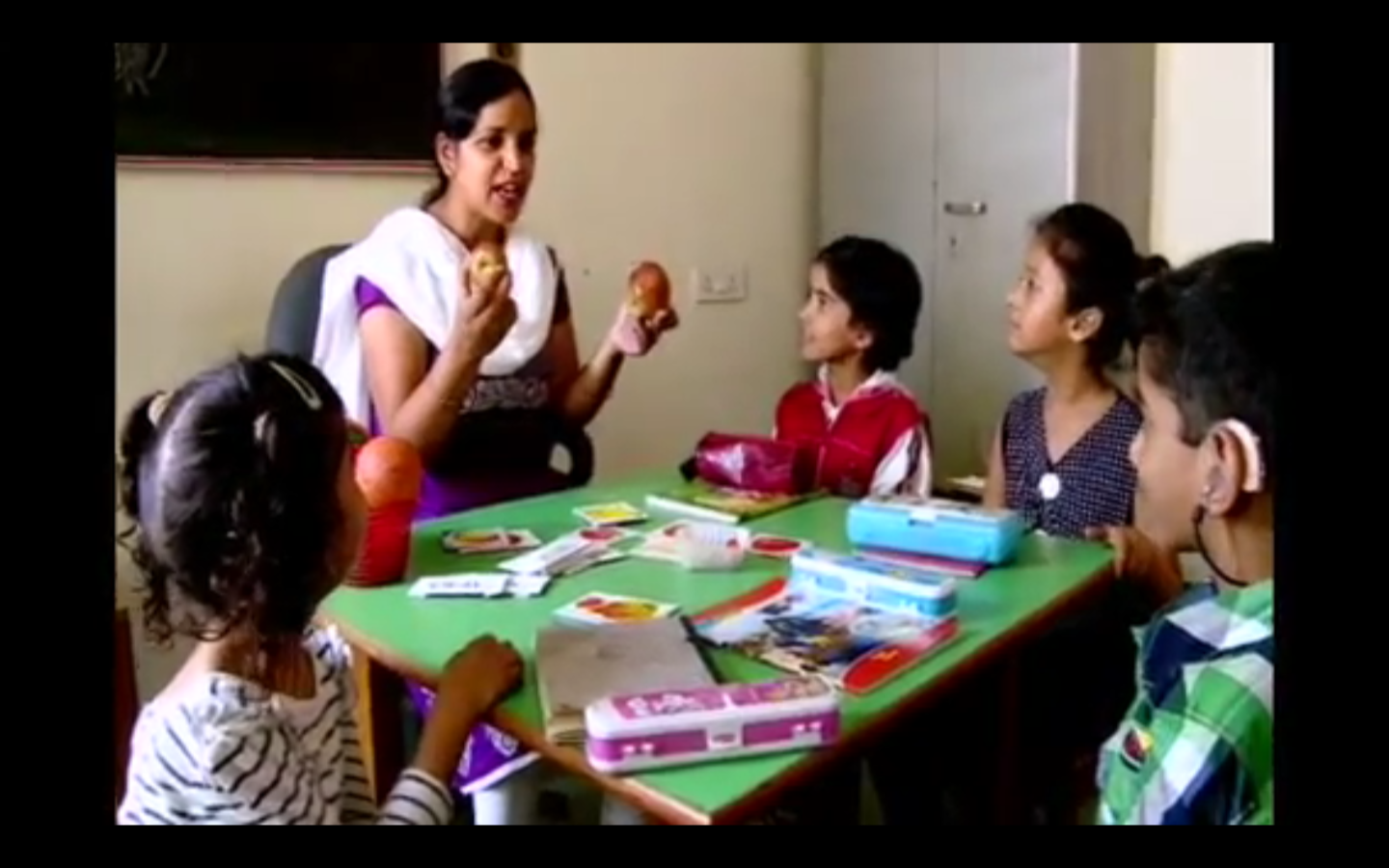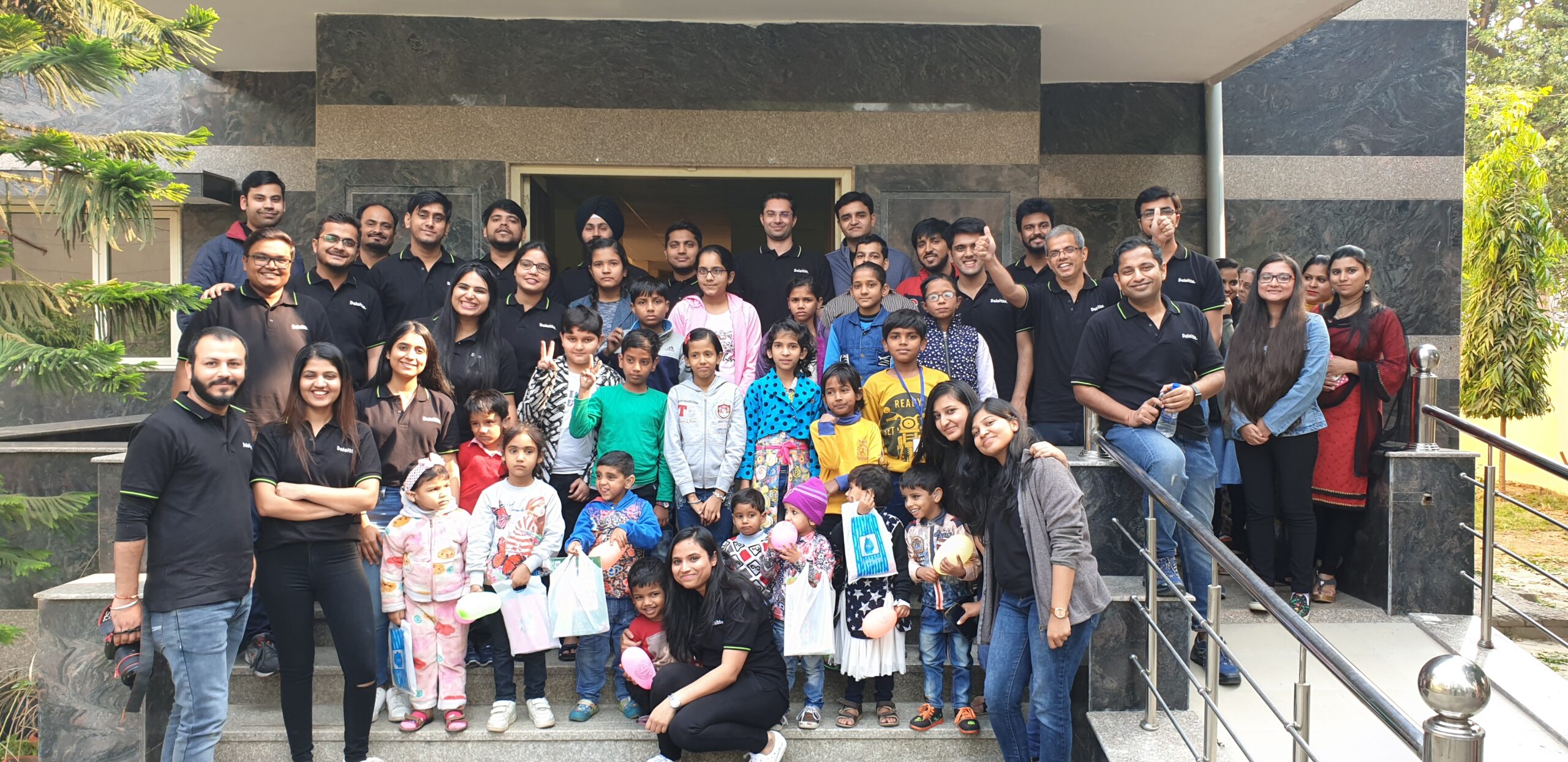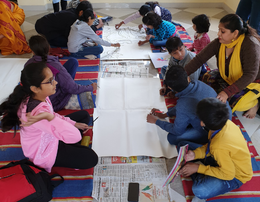
Hearing impairment is as large a challenge as blindness. Since it can’t be seen, the burden and the consequences are underestimated. Hearing loss can occur before a child acquires the ability to speak (pre-lingual deafness) or after (post lingual deafness). It can be partial or total, temporary or permanent. Hearing impairment impedes a child’s ability to develop vocal language and speech development. General, social, psychological development of the child is hampered. It limits his opportunity to education, and even employment.
Read MoreWhy did my child get this?
The causes of deafness are multiple. Permanent deafness can be caused by viral infections occurring during the prenatal period, i.e. when the mother is pregnant, like TORCH infections (Toxoplasma, Rubella, Cytomegalovirus, Herpes and others) or use of drugs that harm the hearing, substance abuse during pregnancy, like excessive alcohol intake, cocaine addiction etc or other diseases like diabetes. Low birth weight, lack of oxygen at the time of birth, prolonged jaundice in the early neonatal period, are other risk factors. Use of ototoxic drugs in children, brain infections such as meningitis, trauma or exposure to very loud sounds can also cause permanent hearing damage in children. Genetic or hereditary diseases are other important causes. Temporary deafness may be caused by ear infections, trauma, impacted wax etc.
How , when and why should we diagnose it?
It is not very difficult to diagnose hearing loss in children. Many countries follow a protocol of universal neonatal hearing screening using simple tests like OAE (Oto-acoustic emmission) followed by a diagnostic ABR (Brainstem response audiometry). These tests provide an opportunity to diagnose deafness in the newborn. Universal screening for all children in all hospitals is ideal, but at least targeted screening for high risk newborns should definitely be done. Unfortunately, these are not very commonly practiced in our country. In this scenario, it is very important for the parents to be vigilant and keep a keen eye on how the child reacts to the sound. This may be in the form of blinking the eyes, startle reflex, or head turning in response to a loud sound.
What we have observed more commonly is denial among parents. They refuse to acknowledge early that the child has some hearing impairment and think that it will get better with age. Even if they realize and notice early signs, they are sometimes not able to reach the correct health care professionals for guidance. This causes a delay in identification and management of these children. If the hearing centre of the child’s brain is not stimulated by 5-6 years, it is taken over by other centres. This phenomenon is called Neural Plasticity. This means that early stimulus of sound to the brain is extremely important.
If the hearing loss is detected right at birth or within the first 6 months, and the child receives rehabilitation, he has a considerably good prognosis. As the child ages, the hearing impairment worsens and the results of rehabilitation get compromised.
The rehabilitated children can achieve anything in their life like any other normal children who were born without deafness. But if left untreated, the child loses multiple opportunities in life, which a parent would never want.
How do we treat it?
Temporary causes of deafness can be easily treated by medication or surgery. However, permanent hearing impairment needs rehabilitation. Rehabilitation depends on the grade of hearing loss a child has. Your doctor (Ear, Nose and Throat surgeon) would conduct different hearing tests, CT scans and MRI of the brain and temporal bone (where the hearing organs are situated) to determine the degree of hearing loss and feasibility of surgery. It is important to stimulate the auditory cortex( hearing centre in the brain) with sounds as early as possible.
Besides hearing deficit, some children may have associated abnormalities of the eyes, heart, kidneys and developmental delay with learning disabilities. A dedicated medical team including a pediatrician, an ophthalmologist, cardiologist and many others is required to evaluate the child in totality before any surgical intervention is undertaken.
For mild to moderate degree of hearing loss, a variety of hearing assistive devices and hearing aids can be used. For severe degree of hearing impairment, a cochlear implant may be planned. These are electronic devices that can be implanted surgically as early as 9 months of age. These provide useful hearing and hence improved communication to children with profound hearing loss. However, the parents must understand that once the child is implanted, a completely new chapter begins for him and the parents. Surgery is not the end of your efforts as a parent, but the beginning of an arduous journey that you and your child have to undertake together to reap the benefits.
Many years of thorough post operative speech and language rehabilitation is required with a speech and language pathologist. The sounds that the child is hearing after an implant are essentially complex electrical signals that have to be interpretted by the brain as completely new and are not as simple as the sounds that you and me can hear. Continuous encouragement and participation from parents and the entire rehabilitation team can help the child develop new skills and move him into the mainstream. Many of these children are success stories today with limitless achievements.
Hellen Keller once said, “Blindness separates people from things, deafness separates people from people”. It is our duty as parents, family members, teachers and doctors to not let deafness be a handicap anymore. Early identification, evaluation, treatment and rehabilitation can help these children lead a better social, personal, and academic life and not lose any opportunity that comes their way.
Wishing all our lovely children and their parents a beautiful transition from deafening silence to the world of music, joy and life!
Categories
- For Parents
- For Children
- Testimonial



